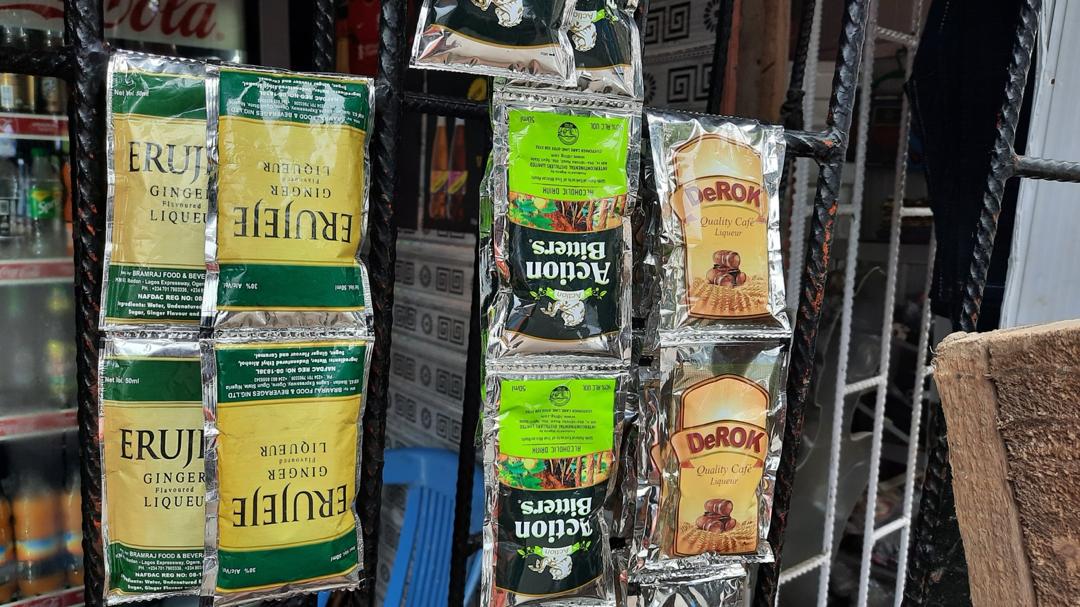By Isaac Atunlute
As Nigeria grapples with rising public-health concerns and economic strain, the National Agency for Food and Drugs Administration and Control (NAFDAC) has announced a temporary suspension of its ban on small-pack and sachet alcoholic beverages.
The move, which is effective until December 31, 2025, offers manufacturers and distributors a crucial window to co-develop sustainable strategies that prioritise economic survival and public health.
Originally enforced in February 2024, the ban sought to eliminate alcoholic packaging in sachets and containers smaller than 200 ml owing to their affordability and appeal to underage consumers. NAFDAC cited not only health concerns but also the environmental impact of plastic waste generated by the packaging.
“We are committed to protecting Nigerians from the dangers of unregulated alcohol consumption,” said Mojisola Adeyeye, the Director-General of NAFDAC, at the time of the ban’s enforcement.
The search for middle ground
The regulation, though well intentioned, drew immediate backlash from small-scale sellers, manufacturers and labour groups.
The Distillers and Blenders Association of Nigeria (DIBAN) warned that millions of job and livelihoods were at risk, particularly for those in Nigeria’s vast informal economy who depend on sachet alcohol sales for daily income.
Labor unions and economic analysts echoed the concerns, urging for a phased and inclusive approach that would address health concerns without triggering large-scale economic displacement.
In response, NAFDAC announced a temporary reprieve beginning May 19 2025, signalling its willingness to engage with industry stakeholders while maintaining its long-term commitment to public safety.
Towards a Sustainable Solution
The suspension period is being framed as an opportunity for solutions-driven engagement. Instead of an abrupt policy shift, regulators are exploring pathways that address the dual challenge of sustaining livelihoods and protecting public health.
Here are some of the key measures under consideration:
- Alternative packaging: NAFDAC and industry players are exploring safer, less appealing packaging that reduces the likelihood of youth access.
- Diversification support for small traders: Programmes to help small traders to transition to alternative sources of livelihood, cushioning the impact of a full-fledged ban later in the year.
- Continuous public education: Ramping up public awareness about the risks of alcohol abuse and the necessity for control measures.
The current suspension is not merely a pause but a chance to reimagine regulation–one that reconciles economic needs and the welfare of the people.
NAFDAC’s willingness to engage signals progress in balancing enforcement with empathy. The coming months will test how effectively the country can unite its health and economic priorities into a single, inclusive strategy.
The National Agency for Food and Drugs Administration and Control (NAFDAC) in Nigeria has temporarily lifted its ban on small-pack and sachet alcoholic beverages, with the suspension effective until December 31, 2025. This decision allows manufacturers and distributors to collaboratively develop sustainable strategies addressing both economic survival and public health. The initial ban, implemented in February 2024, aimed to curtail underage consumption and reduce plastic waste from sachet packaging, though it faced backlash due to potential job losses in Nigeria's informal economy.
In response to concerns from small-scale sellers and labor unions, NAFDAC's temporary reprieve highlights its willingness to collaborate with stakeholders while adhering to its long-term public safety goals. The suspension offers an opportunity for exploring solutions like alternative packaging, diversification support for small traders, and increased public education on alcohol abuse risks. Ultimately, the pause aims to create balanced regulation that aligns economic needs with public welfare, testing Nigeria's capacity to unify health and economic priorities in an inclusive strategy.






